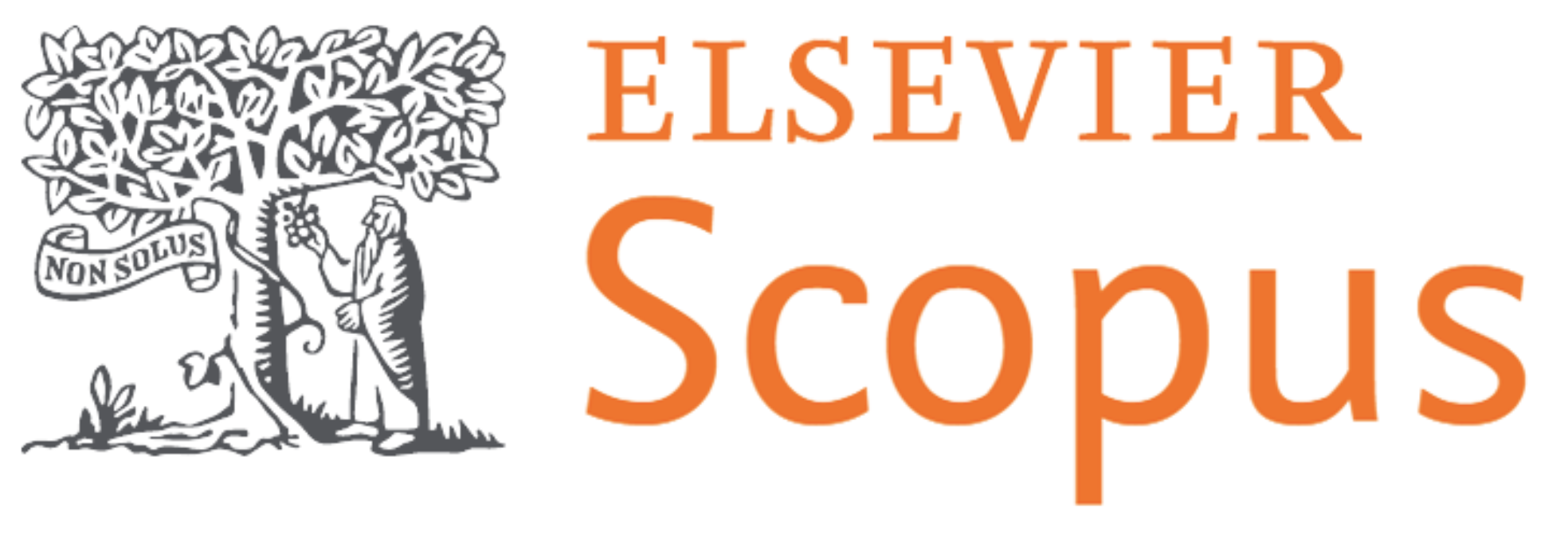A água virtual na produção de grãos no Estado do Ceará, Brasil
DOI:
https://doi.org/10.17765/2176-9168.2023v16n3e10523Palavras-chave:
gestão dos recursos hídricos, valoração ambiental, pegada hídrica.Resumo
A escassez hídrica traz à tona a necessidade de calcular o consumo de água na produção de arroz, feijão e milho no Estado do Ceará. O objetivo do trabalho foi de analisar a água virtual da produção de arroz, feijão e milho no Estado do Ceará durante o período de 2007 a 2016. Para tanto utilizou-se a metodologia proposta por Hoekstra et al. (2011), que considera para o cálculo a água doce superficial ou subterrânea, a água provinda da precipitação que é armazenada no solo e a água utilizada para diluir os poluentes na produção. Expostos os resultados, percebe-se que a maior pegada hídrica azul está associada à produção de milho, ao passo que a pegada hídrica verde mais significativa à produção de feijão, bem como a maior pegada hídrica cinza à produção de milho.Referências
ALLAN, J. A. Virtual water: a strategic resource solutions to regional deficits. Ground Water, v. 36, n. 4, p. 545-546, 1998. DOI: http://dx.doi.org/10.1111/j.1745-6584.1998.tb02825.x
ALLAN, R. G.; PEREIRA, L. S.; RAES, D.; SMITH, M. Crop evapotranspiration: guidelines for computing crop water requirements. Irrigation and Drainage Paper, n. 56. Rome: FAO, 1998.
BASSI, C. M. Água virtual e o complexo soja: contabilizando as exportações brasileiras em termos de recursos naturais. Instituto de Pesquisa Econômica Aplicada - IPEA, Brasília, 2016. Disponível em: https://repositorio.ipea.gov.br/handle/11058/6267. Acesso em: 20 out. 2022.
BELTRÁN, M. J.; VELÁZQUEZ, E. La ecología política del agua virtual y huella hídrica: Reflexiones sobre la necesidad de un análisis crítico de los indicadores de flujos virtuales de agua en la economia. Revista de Economía Crítica, n. 20, 2015. Disponível em: https://revistaeconomiacritica.org/index.php/rec/article/view/85/66. Acesso em: 20 out. 2022.
BLENINGER, T.; KOTSUKA, L. K. Conceitos de água virtual e pegada hídrica: estudo de caso da soja e óleo de soja no Brasil. Recursos Hídricos. Associação Portuguesa dos Recursos Hídricos, v. 36, n. 01, 2015. Disponível em: https://www.aprh.pt/rh/pdf/rh36_n1-2.pdf. Acesso em: 20 out. 2022.
BOSIRE, C. K. et al. Trends and spatial variation in water and land foot prints of meat and milk production systems in Kenya. Agriculture, Ecosystems & Environment, v. 205, p. 36-47, 2015. DOI: https://doi.org/10.1016/j.agee.2015.02.015
CONNOR, R.; UHLENBROOK, S.; KONCAGUL, E. Relatório mundial das Nações Unidas sobre desenvolvimento dos recursos hídricos 2019: não deixar ninguém para trás. UNESCO, 2019. Disponível em: https://unesdoc.unesco.org/ark:/48223/pf0000367303_por. Acesso em: 20 out. 2022.
DALY, H. E. Toward some operational principles of sustainable development. Ecological Economics, v. 2, p. 1-6, 1990. DOI: https://doi.org/10.1016/0921-8009(90)90010-R
ERCIN, A. E.; MEKONNEN, M. M.; HOEKSTRA, A. Y. Sustainability of national consumption from a water resources perspective: the case study for France. Ecological Economics, v. 88, p. 133-147, 2013. DOI: https://doi.org/10.1016/j.ecolecon.2013.01.015
FAO. Food and Agriculture Organization of the United Nations. Disponível em: https://www.fao.org/aquastat/en/. Acesso em: 20 out. 2022.
FINA. FÉDÉRATION INTERNATIONALE DE NATATION. FINA facilities rules. Part IX. 2015-2017. 2016. Disponível em: http://www.fina.org. Acesso em: 20 out. 2022.
FRANKIE, N. A.; BOYACIOGLU, H.; HOEKSTRA, A. Y. Grey water footprint accounting: Tier 1 supporting guidelines. Value of Water Research Report Series nº 65. UNESCO-IHE Institute for Water Education, 2013. Disponível em: https://waterfootprint.org/media/downloads/Report65-GreyWaterFootprint-Guidelines_1.pdf. Acesso em: 20 out. 2022.
GELAIN, J. G.; ISTAKE, M. Exportação líquida de água virtual brasileira e estadual. Revista Brasileira de Estudos Regionais e Urbanos (RBERU), v. 09, n. 2, p. 150-168, 2015. Disponível em: https://www.revistaaber.org.br/rberu/article/view/101. Acesso em: 20 out. 2022.
GONZALEZ, M. H. G.; JEZIORNY, D. L. Tempo e Sistemas Complexos: Adaptação, parasitismo e sustentabilidade. XII Encontro Nacional da Sociedade Brasileira de Economia Ecológica, v. 1, p. 1-3, Uberlândia, MG, Brasil, 2017.
HOEKSTRA, A. Y. Human appropriation of natural capital: A comparison of ecological footprint and water footprint analysis. Ecological Economics, v. 68, n. 7, p. 1963-1974, maio 2009. DOI: https://doi.org/10.1016/j.ecolecon.2008.06.021
HOEKSTRA, A. Y.; CHAPAGAIN, A. K.; ALADAYA, M. M.; MEKONNEM, M. M. The Water Footprint Assessment Manual - Setting the Global Standard. London, Earthscan, 2011. Disponível em: https://waterfootprint.org/media/downloads/TheWaterFootprintAssessmentManual_2.pdf. Acesso em: 20 out. 2022.
MARACAJÁ, Kettrin Farias Bem et al. Pegada Hídrica como Indicador de Sustentabilidade Ambiental. Reunir, Campo Grande, v. 2, n. 2, p. 113-125, 07 ago. 2012. DOI: https://doi.org/10.18696/reunir.v2i2.75
RENAULT, D. Value of Virtual Water for Food: Principles and features. Proceedings Expert meeting on Virtual Water, Delft, December 2002. Disponível em: https://www.fao.org/3/ap527e/ap527e.pdf. Acesso em: 20 out. 2022.
ROMEIRO, A. R. Desenvolvimento Sustentável: uma perspectiva econômico-ecológica. Estudos Avançados. v. 16, n. 74, 2012. DOI: https://doi.org/10.1590/S0103-40142012000100006
Downloads
Publicado
Como Citar
Edição
Seção
Licença
A Revista se reserva o direito de efetuar, nos originais, alterações de ordem normativa, ortográfica e gramatical, com o intuito de manter o padrão culto da língua, respeitando, porém, o estilo dos autores. As opiniões emitidas pelos autores são de sua exclusiva responsabilidade.Os direitos autorais pertencem exclusivamente aos autores. Os direitos de licenciamento utilizado pelo periódico é a licença Creative Commons Attribution
 Creative Commons Atribuição 4.0 Internacional. São permitidos o compartilhamento (cópia e distribuição do material em qualquer meio ou formato) e adaptação (remixar, transformar, e criar a partir do trabalho, mesmo para fins comerciais), desde que lhe atribuam o devido crédito pela criação original.
Creative Commons Atribuição 4.0 Internacional. São permitidos o compartilhamento (cópia e distribuição do material em qualquer meio ou formato) e adaptação (remixar, transformar, e criar a partir do trabalho, mesmo para fins comerciais), desde que lhe atribuam o devido crédito pela criação original.










